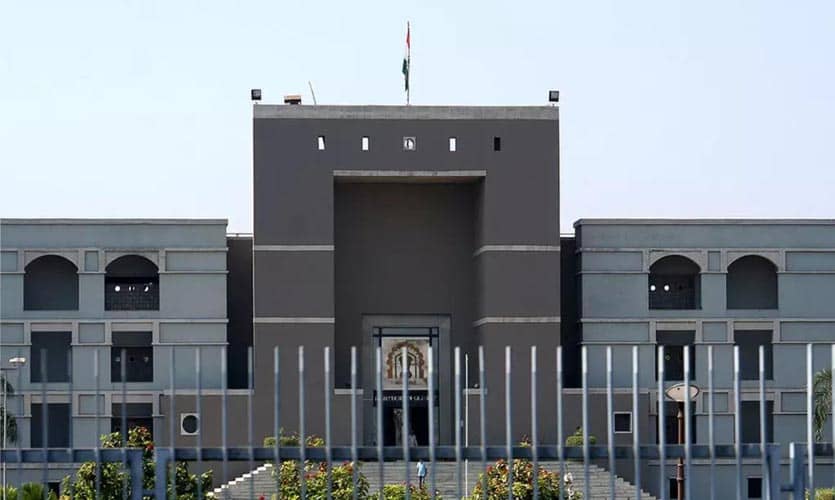The Gujarat High Court has ruled that the Gujarat Freedom of Religion (Amendment) Act, 2021 violates Article 21 of the Constitution – the right to life. According to India Today, the decision was issued by a Division Bench comprising Chief Justice Vikram Nath and Justice Biren Vaishnav, in response to a petition filed by Muhammed Hakim contesting the provisions of the statute that prohibits coercive conversion via marriage. The “anti-Love Jihad” bill was approved in the state assembly on April 1 following a day-long debate, gained Gujarat Governor Acharya Devvrat’s assent on May 22, and was publicly announced on June 15.
The Ruling
Reportedly, the High Court noted, “Prima-facie inter-faith marriages between two consenting adults by operation of the provisions of Section 3 of the 2003 Act interferes with the intricacies of marriage including the right to the choice of an individual, thereby infringing Article 21 of the Constitution Of India.”
The Bench continued, “We are therefore of the opinion that, pending further hearing the rigours of Sections 3, 4, 4A to 4C, 5, 6 and 6A shall not operate merely because marriage is solemnised by a person of one religion with a person of another religion without force or by allurement or by fraudulent means and such marriages cannot be termed as marriages for unlawful conversion.” It further said that the purpose of this temporary injunction is to safeguard interfaith couples from harassment.
Six sections of Gujarat’s law have been declared invalid by the Gujarat High Court. In its order, the High Court declared that an FIR cannot be lodged until the woman has been lured to marriage under false pretences.
Advocate General Kamal Trivedi representing the Gujarat government, defended the new anti-conversion law, saying that marriages cannot be a tool for “forceful conversion”. Trivedi also stated that there should be no fear on the part of individuals toward the law. “Why this fear? So long as the genuine conversion is there, people need not worry. Interfaith marriage per se is not prohibited in this law. It only prohibits forcible conversion by marriage,” he said. He had also argued on August 17 that interfaith marriages are not “prohibited per se”.
In the petition, it has been argued that the amended law goes against basic principles of marriage and the right to propagate, profess and practice religion as enshrined in Article 25 of the Constitution. According to Trivedi, the provision alone could not be interpreted by itself, but the Act as a whole must be taken into account. Nevertheless, the court said that the wide interpretation would take place later, staying the provisions for now.
The Law In Question
The new anti-conversion law, according to the Indian Express, shifts the burden of proof of legal religious conversion from the converter to his partner, defines the call for religious conversion in vague and overly broad terms, imposes different sentences based on gender, and legalises family and social invasions to oppose marriages of different faiths.
The report notes that they also allow the state to have the authority to undertake a police investigation to verify the involved parties’ intentions to convert for marriage. Some regulations interfere with an individual’s ability to marry someone from another religion and convert for that purpose, according to legal experts. Besides being ambiguous and broad, the rules also put a test on just how far the government may intrude in people’s personal lives. As a result of the new anti-conversion legislation, people’s freedom to propagate their faith and their right to pick a spouse could have easily been violated.
As a result, provisions such as filing a complaint, penalty for marriage by unlawful conversion, offences by institutions, prior authorisation from the District Magistrate for conversion, prosecution, and the weight of evidence on the parties would no longer be functional. All offences under this law are non-bailable, and the maximum sentence is ten years in prison.
Uttar Pradesh and Madhya Pradesh have both previously enacted laws against forced conversion through marriage.
Opposition’s Take
Imran Khedawala, a member of the Congress party had voted against the anti-conversion bill, claiming that it primarily targets the Muslim population. When it issued its August 19 ruling, the High Court pointed out that the law prevents any conversion based on marriage in its entirety. Shafin Jahan versus Ashokan, a case presided by the Supreme Court, was cited to support the conclusion that a conversion cannot be deemed illegal solely because it is done for marriage.
Read more: Delhi Court Clears Shashi Tharoor In Sunanda Pushkar Death Case
A Ray Of Hope
Even though the state may have a legitimate interest in preventing illegal, forceful conversions, the Gujarat High Court’s involvement recognises that the anti-conversion law’s intrusion into an individual’s private life is unacceptable. A boundary has been drawn and the state is prohibited from interfering in a marriage when there is no proof that it was coerced or violent.
While the judiciary’s participation in the legal system is increasing, it may be a while before rulings reach the ground. Regardless, it can still be considered a step forward.










